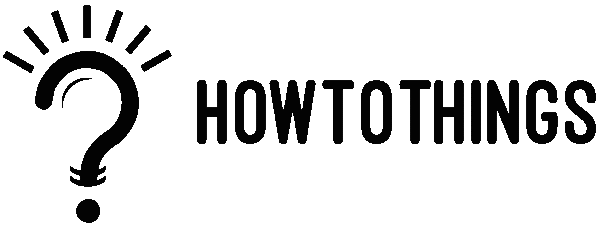How to Improve Your Hearing?
Experiencing hearing loss can be a scary thing for anyone, and unfortunately, it is a common issue. However, there are many ways to improve your hearing or protect yourself from damage. If you’re already experiencing hearing loss, it’s advisable to see your doctor to discuss the variety of options available to fix the problem. Additionally, you can prevent damage to your hearing in the first place by incorporating a few simple tricks into your everyday life. By doing so, you can maintain your hearing for years to come. Let us dive in to learn.
“Tips for Better Hearing: How to Improve Your Listening Skills and Protect Your Ears”

Natural Ways to Improve Your Hearing
Improving your hearing naturally involves adopting certain habits and making lifestyle choices. Here are some easy-to-understand tips:
Practice Listening:
Do sound location exercises to improve your ability to focus on specific sounds. For example, have someone hide a sound-making item and try to find it in a noisy environment.
Eat Healthy:
Your ears need proper nutrition. Include foods rich in zinc, potassium, folic acid, magnesium, vitamin D, and omega-3s in your diet. Good choices are leafy greens, bananas, nuts, seeds, fish, poultry, and low-fat dairy. If needed, talk to your doctor about supplements.
Exercise Regularly:
Aerobic exercises like running, biking, swimming, or walking can help maintain your hearing. Aim for 20-30 minutes, at least 5 days a week. Weight training is good for overall health but not directly linked to improved hearing.
Manage Stress:
Stress and anxiety might affect your hearing. Practice relaxation techniques like meditation, yoga, or deep breathing. Engage in activities you enjoy to reduce stress.
Herbal Supplements for Tinnitus:
If you experience constant ringing or buzzing in your ears (tinnitus), some herbal supplements might help. Consult your doctor before trying:
Ginkgo biloba
Zinc
Vitamin B
Remember, these natural approaches are supportive and may not reverse hearing damage. If you’ve been exposed to loud noises or have existing hearing issues, consider consulting a healthcare professional, and hearing aids may still be necessary.

Practical Steps for Better Ear Health and Improve Your Hearing
Here are some straightforward tips to protect your hearing:
Avoid Loud Environments:
Steer clear of very loud places or situations. If you have to raise your voice to talk with someone, it’s too loud. Use smartphone apps to measure decibel levels.
Wear Ear Protection:
When you can’t avoid loud noises, especially at work or concerts, use ear protection like earplugs or earmuffs. This is crucial for jobs with power tools or exposure to loud music.
Keep Earplugs Handy:
Be prepared for unexpected loud situations by carrying earplugs with you. It’s a simple way to protect your ears on the go.
Manage Headphone Volume:
Control the volume when using headphones to prevent hearing loss. If you find yourself cranking up the volume to overcome external sounds, consider noise-canceling headphones.
Avoid Ear Insertions:
Refrain from sticking objects like cotton swabs or fingers into your ears. Your ears naturally clean themselves, and inserting objects can damage your eardrum.
Quit Smoking:
Smoking can harm your hearing by reducing blood flow to the ears. If you smoke, quitting is beneficial for your overall health, including your hearing. Avoid secondhand smoke exposure as well.
Remember, taking these simple precautions can go a long way in preserving your hearing health. If you have concerns about your hearing or notice any changes, it’s advisable to consult with a healthcare professional.

Simple Medical Treatments to Improve Your Hearing Ability
If the previous strategies haven’t improved your hearing, it’s time to consult a doctor for potential medical treatments. Here’s what you might expect:
Visit a Doctor:
If you’re experiencing difficulty hearing that affects your daily life, schedule an appointment with your doctor. They will examine your ears, conduct a hearing test, and may refer you to an ear specialist (otolaryngologist) or audiologist for more in-depth testing.
Earwax Removal:
If a blockage due to earwax is causing your hearing loss, your doctor can easily remove it using a small tool or vacuum. They might also provide ear drops to dissolve wax buildup. Avoid attempting to remove earwax at home to prevent potential damage.
Hearing Aids:
If your inner ear is damaged or affected by aging, hearing loss may not be reversible naturally. Hearing aids are common devices that can help by amplifying sound. There are various types, and your doctor will guide you to choose the most suitable one for your needs. Over-the-counter hearing aids may also be an option for mild hearing loss.
Cochlear Implants:
If hearing aids aren’t effective due to significant inner ear damage, cochlear implants may be considered. These implants bypass the ear canal and directly stimulate the auditory nerve. A surgeon installs the implant through a minor surgical procedure, and it can be removable.
Minor Surgery for Ear Abnormalities:
In cases where the structures or bones in your ear are not formed correctly, leading to hearing loss, minor surgical procedures may be recommended. An ear specialist will assess whether surgery is necessary and explain the process. Surgery may also be needed for persistent ear infections affecting fluid drainage.
Remember, if you experience a sudden loss of hearing, especially in one ear, seek medical attention promptly, as it could be a serious medical issue. Always follow your doctor’s advice and recommendations for the best course of action based on your specific situation.
Certainly! If you have more articles or information on ear health, feel free to share or ask any specific questions you may have. Whether it’s about preventive measures, common ear issues, or anything related to ear health, I’m here to help!
